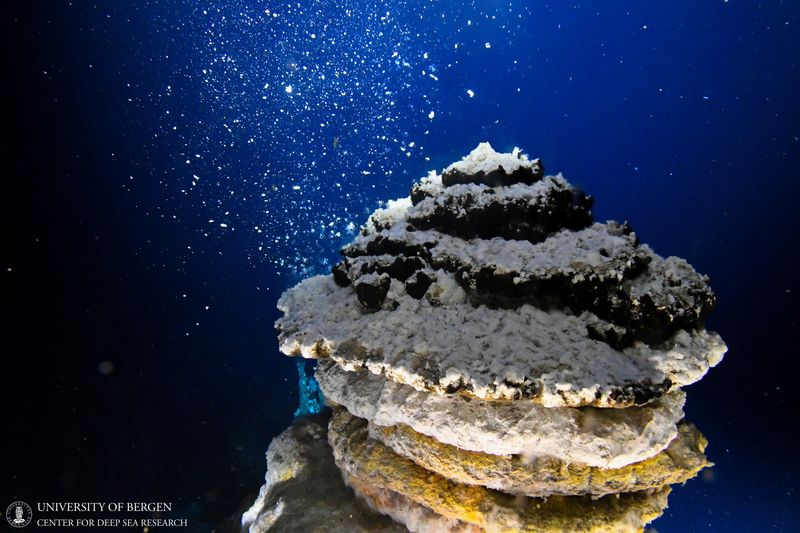Norway parliament in deal to advance seabed mining
2023.12.05 04:09
8/8

© Reuters. A view shows an active venting chimney at the Jan Mayen Vent Fields on the Arctic Mid-Oceanic Ridge and a lot of white microbial mats cover the chimney, at a depth of around 500m, in this undated handout picture. University of Bergen, Centre for Deep Sea
2/8
By Victoria Klesty
OSLO (Reuters) – Norway’s minority Labour-led government has struck a deal with two opposition parties to open Arctic oceans to mineral exploration, a key step on the way to full-scale seabed mining, a spokesperson for one of the parties told Reuters on Wednesday.
The deal comes as Norway hopes to become the first country to make deep-sea mining happen on a commercial scale and secure critical minerals and jobs despite concerns over the environmental impact and international calls for a moratorium.
The amended version of the government’s proposal, which parliament will formally debate on Jan. 4 followed by a vote, sets stricter environmental survey requirements during the exploration phase than originally planned.
The compromise also gives parliament the final say at a later time on whether to approve full-scale mining based on data gathered from the deep-sea environment during the initial exploration.
The deal was agreed between the two parties in the minority government – Labour and the Centre Party – and the opposition Conservatives and the Progress Party, securing a comfortable majority.
Baard Ludvig Thorheim, a member of parliament for the Conservatives, told Reuters the environmental bar for seabed mining had been set fairly high in the amended proposal.
“We believe, and hope, it will become the international standard for this activity,” he said. “At the same time it is important that it is a framework that is predictable for commercial players, on which we rely on for these activities.”
He said the parties had hotly debated how to balance the need for environmental requirements against commercial viability for companies seeking to start marine mining.
“If the demands are too steep and too complicated, there won’t be any interest, but at the same time it is also in these companies’ interest to partake in an activity that has a good reputation and adheres to demands on sustainability,” he said.








